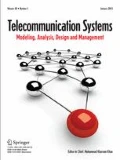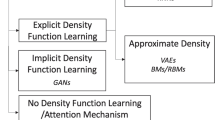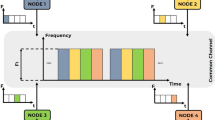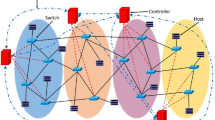Abstract
In this paper, a multiservice transmission scheme which joints voice, video, interactive game and signaling is evaluated for the dedicated channel of the Universal Mobile Telecommunications System. The transmission rate for each service is determined by means of an adaptive transport format selection. In the UMTS standard, this selection is based on power allocation provided by radio resource controller, trying to match the Eb/No requirements of the individual services. An appropriate selection of the individual rates of each multiplexed service, taking into account its particular QoS requirements, will provide a more efficient resource management than the transmission only restricted to power allocation. For this purpose, we propose and evaluate a new selection strategy based on buffer occupation, delay requirements and target bit rate keeping power constraints that intends to improve the basic operation trying to minimize the impact of the whole network. Video and game services are multiplexed in upper layers (logical channels) sharing a common transmission rate (transport channel). In this paper, it is proposed a new strategy to share the transmission rate set for this transport channel between both services taking into account their particular requirements. Results show that considering delay constraints provides a more balanced performance of the multiplexed services.
Similar content being viewed by others
References
S. Baey, M. Dumas and M.C. Dumas, QoS tuning and resource sharing for UMTS WCDMA multiservice mobile, IEEE Transactions on Mobile Computing 1(3) (2002) 221–235.
M.S. Borella, Source models of network game traffic, Computer Communications 23(4) (2000) 403–410.
M. Canales, A. Valdovinos, J.R. Gállego and F. Gutiérrez, Performance analysis of diversity transmission modes in UTRA FDD under time-varying multipath channels, in: Proc. of IEEE PIMRC 2002, Lisbon (September 2002) pp. 1357–1361.
Channel coding and multiplexing examples, 3GPP technical specification 25.944 v4.1.0 (2001).
Feasibility study for enhanced uplink for UTRA FDD, 3GPP Technical Report 25.896 v1.1.2 (2003).
J.R. Gállego, A. Valdovinos, M. Canales and J. de Mingo, Analysis of closed loop power control modes in UTRA-FDD under time-varying multipath channels, in: Proc. of IEEE PIMRC 2002, Lisbon (September 2002) pp. 1616–1620.
Group services and system aspects; service aspects; services and service capabilities, 3GPP technical specification 22.105 v6.2.0 (2003).
A. Hernández-Solana, A. Valdovinos and F. Casadevall, Capacity analysis and performance evaluation of call admission control for multimedia packet transmission in UMTS WCDMA system, in: Proc. of IEEE WCNC 2003, Vol. 3 (March 2003) pp. 1550–1555.
J. Laiho, A. Wacker and T. Novosad, Radio Network Planning and Optimisation for UMTS (Wiley, New York, 2000).
Medium Access Control (MAC) protocol specification, 3GPP technical specification 25.321 v5.4.0 (2003).
Multiplexing and channel coding (FDD), 3GPP technical specification 25.212 v5.3.0 (2002).
Packet Data Convergence Protocol (PDCP) specification, 3GPP technical specification 25.323 v5.2.0 (2002).
Radio Link Control (RLC) protocol specification, 3GPP technical specification 25.322 v5.4.0 (2003).
Radio resource management strategies, 3GPP technical specification 25.922 v5.0.0 (2002).
RF system scenarios, 3GPP technical specification 25.942 v6.0.0 (2002).
UE radio transmission and reception (FDD), 3GPP technical specification 25.101 v5.5.0 (2002).
Author information
Authors and Affiliations
Corresponding author
Rights and permissions
About this article
Cite this article
Canales, M., Hernández-Solana, Á., Gállego, J.R. et al. Adaptive Resource Sharing Strategies for UMTS Multiservice Mobiles. Telecommun Syst 28, 151–167 (2005). https://doi.org/10.1007/s11235-004-5014-0
Issue Date:
DOI: https://doi.org/10.1007/s11235-004-5014-0




